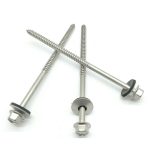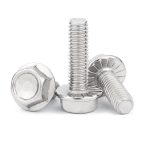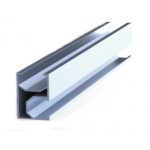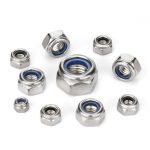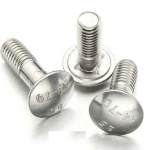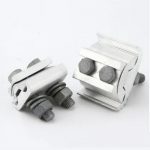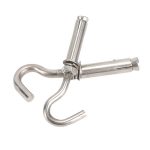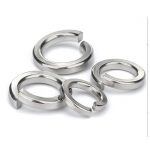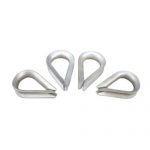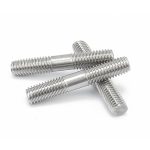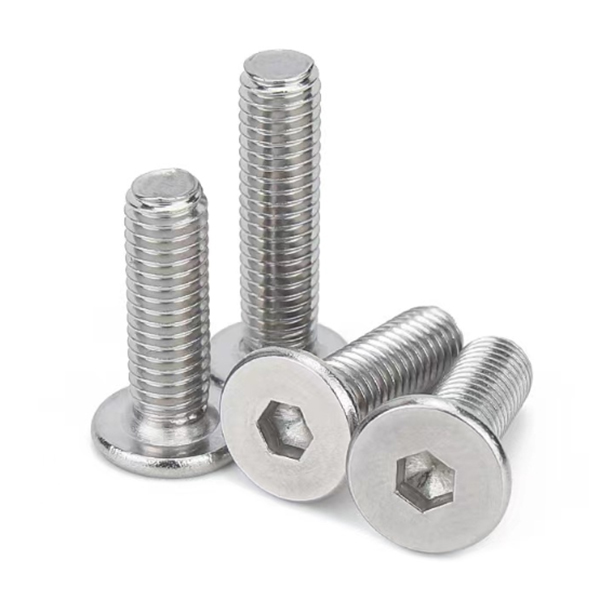
Product Description:
Standard: DIN7991/ANSI/ASME B18.3.5M
GRADE: A2-70,A4-80
Material: stainless steel A2-304,A4-316,SMO254,201,202,
Size:from #8 to 7/8”, from M3 to M20.
Length:from 1/2" to 4" ,from10MM-100MM
Surface finish:Plain or Customized
Packing: cartons with furmigated pallets
Supply ability: 50tons per month
Assembly: normally with nut or hex flange nut
When it comes to fasteners, bolts are one of the most commonly used types. Bolts come in various shapes and sizes, each with its own unique characteristics that make them suitable for specific applications. One type of bolt that is gaining popularity in various industries is the SS flat socket head bolt. In this article, we will discuss what SS flat socket head bolts are, their advantages, how they work, and their applications.
What is an SS flat socket head bolt?
An SS flat socket head bolt is a type of bolt that has a cylindrical shaft, a flat head, and a socket on the top. The socket is designed to fit a hex key or an Allen wrench, allowing the bolt to be tightened or loosened easily. The flat head of the bolt allows it to be flush with the surface of the material it is fastening, making it suitable for applications where a smooth finish is desired.
Advantages of SS flat socket head bolts
SS flat socket head bolts offer several advantages over other types of bolts. Firstly, their flat head design allows them to be used in applications where a smooth finish is required, without protruding or causing any obstruction. Secondly, the socket on the top of the bolt allows for easy and precise tightening or loosening, making them an ideal choice for applications where a high level of accuracy is required. Thirdly, the cylindrical shape of the shaft makes them suitable for applications where a high degree of strength and durability is needed.
How do SS flat socket head bolts work?
SS flat socket head bolts work by creating a mechanical joint between two or more materials. The bolt is inserted through a hole in the materials to be fastened, and a nut is screwed onto the threads of the bolt to hold the materials together. The socket on the top of the bolt allows a hex key or an Allen wrench to be inserted, providing the user with a means to tighten or loosen the bolt. The flat head of the bolt sits flush with the surface of the material, providing a smooth finish.
Types of SS flat socket head bolts
There are several types of SS flat socket head bolts available, each with its own unique characteristics. Some of the common types include:
- Standard SS flat socket head bolts
- Low head SS flat socket head bolts
- Button head SS flat socket head bolts
- Shoulder SS flat socket head bolts
Common applications of SS flat socket head bolts
SS flat socket head bolts are commonly used in a variety of industries and applications, including:
- Automotive industry
- Aerospace industry
- Construction industry
- Marine industry
- Electrical industry
Some common applications of SS flat socket head bolts include securing components in engines, fastening panels and components in aircraft, anchoring steel structures in construction, securing components in marine vessels, and securing electrical components.
Materials used for SS flat socket head bolts
SS flat socket head bolts can be made from a variety of materials, including:
- Stainless steel
- Carbon steel
- Alloy steel
- Titanium
- Aluminum
The choice of material depends on the specific application and the properties required of the bolt, such as strength, corrosion resistance, and weight.
Manufacturing process of SS flat socket head bolts
The manufacturing process of SS flat socket head bolts involves several steps. Firstly, the raw material is selected and prepared for production. Then, the material is cut into the desired length and diameter, and the threads are formed on the shaft. Next, the socket is machined onto the top of the bolt. Finally, the bolt is heat-treated and finished with a coating to enhance its durability and corrosion resistance.
Factors to consider when selecting SS flat socket head bolts
When selecting SS flat socket head bolts for a specific application, several factors must be considered, such as:
- Material compatibility with the components being fastened
- The strength and durability required for the application
- The size and length of the bolt
- The type of head required for the application
- The torque required to tighten the bolt
- The environment in which the bolt will be used
Installation of SS flat socket head bolts
The installation of SS flat socket head bolts requires a few simple steps. Firstly, the bolt is inserted through the hole in the material to be fastened. Then, a nut is threaded onto the end of the bolt and tightened using a hex key or an Allen wrench. It is important to ensure that the bolt is tightened to the required torque to prevent it from coming loose.
Maintenance and care of SS flat socket head bolts
Proper maintenance and care of SS flat socket head bolts are essential to ensure their longevity and effectiveness. It is recommended to regularly inspect the bolts for signs of wear or damage and replace them if necessary. Additionally, it is important to ensure that the bolts are kept clean and free from dirt, debris, or corrosive substances that can weaken the material and cause it to fail.
SS flat socket head bolt vs other types of bolts
SS flat socket head bolts offer several advantages over other types of bolts, such as:
- The flat head design allows for a smooth finish, without protruding or causing any obstruction
- The socket on the top allows for easy and precise tightening or loosening, making them ideal for applications where a high level of accuracy is required
- The cylindrical shape of the shaft makes them suitable for applications where a high degree of strength and durability is needed
Conclusion
In conclusion, SS flat socket head bolts are a versatile and durable type of bolt that can be used in various industries and applications. Their unique design and characteristics make them an ideal choice for applications where a smooth finish, high accuracy, and strength are required. It is important to select the right type of SS flat socket head bolt for the specific application, considering factors such as material compatibility, strength, and torque requirements.
FAQs
Are SS flat socket head bolts more expensive than other types of bolts?
The cost of SS flat socket head bolts may vary depending on the material, size, and quantity required.
What is the maximum torque that can be applied to an SS flat socket head bolt?
The maximum torque that can be applied to an SS flat socket head bolt depends on the size and material of the bolt.
Can SS flat socket head bolts be reused?
It is generally not recommended to reuse SS flat socket head bolts as they may lose their strength and effectiveness over time.
How do I know which type of SS flat socket head bolt to use for my application?
The type of SS flat socket head bolt to use depends on several factors, such as material compatibility, strength requirements, and torque requirements. It is recommended to consult with a professional or the manufacturer for guidance.
Are SS flat socket head bolts suitable for outdoor applications?
Yes, SS flat socket head bolts are suitable for outdoor applications as they are made of stainless steel, which offers excellent corrosion resistance, even in harsh outdoor environments.
Can SS flat socket head bolts be used in high-temperature applications?
Yes, SS flat socket head bolts can be used in high-temperature applications, depending on the specific grade of stainless steel used. It is important to select a grade of stainless steel that is suitable for the specific temperature range of the application.
What is the difference between SS flat socket head bolts and SS cap screws?
SS flat socket head bolts and SS cap screws are similar in design and function, but they have some differences in their application. SS flat socket head bolts are typically used in applications where a smooth finish and high accuracy are required, while SS cap screws are commonly used in applications where a high degree of clamping force is needed.
What is the difference between SS flat socket head bolts and SS button head bolts?
The main difference between SS flat socket head bolts and SS button head bolts is in their head design. SS flat socket head bolts have a flat top, while SS button head bolts have a rounded top. The choice between the two types of bolts depends on the specific application requirements, such as clearance or aesthetics.
Can I use SS flat socket head bolts in applications that require high tensile strength?
Yes, SS flat socket head bolts are available in various grades of stainless steel, including some that offer high tensile strength. It is important to select the appropriate grade of stainless steel for the specific application to ensure the desired level of strength and durability.
Can I replace a standard hex bolt with an SS flat socket head bolt?
It depends on the specific application requirements. SS flat socket head bolts offer unique advantages over standard hex bolts, but they may not always be suitable for every application. It is recommended to consult with a professional or the manufacturer for guidance on selecting the right type of bolt for the specific application.

